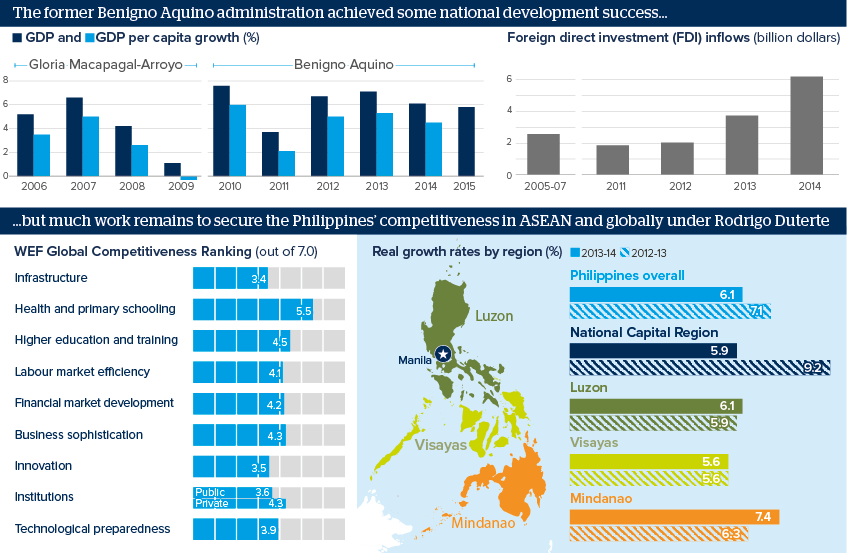Philippine president pushes pragmatic policy positions
The new president has wide-ranging national development aims, and high expectations to fulfil

Source: World Economic Forum; UNCTAD; World Bank; Asian Development Bank; Philippine Statistics Authority
Outlook
Rodrigo Duterte was today inaugurated as Philippines president. Constitutionally, he will serve one six-year term, so he will likely be in office to mid-2022. He suceeds Benigno Aquino, who increased investor interest in the Philippines and moved to expand public spending and investment, for instance in infrastructure. However, Aquino was not able to resolve maritime disputes or internal security difficulties.
Duterte has pledged to continue his predecessor's macroeconomic policies, while assertively cracking down on corruption and illegality. He also pledges to push for investor-friendly reforms, a federal parliamentary system, internal security improvements, improved competitiveness and, potentially, some maritime accord with China.
Impacts
- The anti-corruption campaign may improve the business environment, but could be socially controversial and divisive.
- Duterte will seek a foreign policy of balance between ASEAN, China and the United States.
- Controversial constitutional reforms to allow greater foreign investment and ownership have only modest success chances.
- Prospects are positive for progress in the Moro peace process and talks with communist insurgents.
- Government spending priorities will focus on the regions outside Manila.
See also
- Latest Philippine martial law plan creates new risks - Jan 12, 2018
- Renewed Philippine peace push could be problematic - Jun 30, 2017
- Martial law call could threaten Philippines’ Duterte - May 25, 2017
- Philippines jobs and wages issues could hit government - Apr 27, 2017
- Philippines infrastructure needs more private money - Apr 10, 2017
- Duterte eyes bold Philippines policy agenda - May 25, 2016
- More graphic analysis